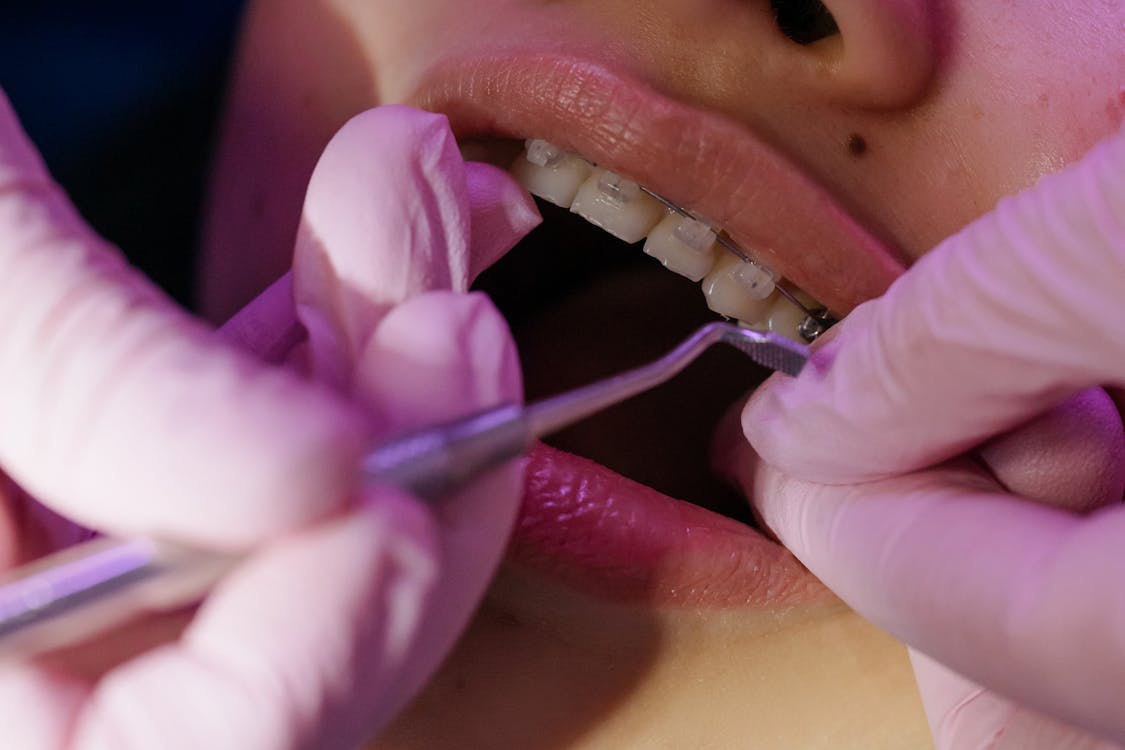
Dentist visits can be a little scary, especially if you have sensitive teeth. For some people, the dentist is one of the few places where it hurts to have sensitive teeth and it’s not because of how painful that cleaning was. Since most people see their dentist once in a while and not as often as they should, most of them don’t realize that teeth sensitivity is actually a common problem. In fact, almost everyone experiences sensitivity at some point in their lives. But for those who experience it chronically, dentists are a great resource for finding the best treatments for sensitive teeth. Whether you have minor or chronic sensitivity and whether your dentist recommends them or not, here are some tips on the best treatments for sensitive teeth:
Going to the Dentist
It’s important to see your dentist regularly to keep your teeth healthy. If you notice any sensitivity during your checkups, your dentist can help you determine if it’s due to plaque or bacterial buildup. If it’s plaque, your dentist will suggest ways to reduce it – like brushing and flossing more regularly. If it’s due to bacterial buildup, your dentist may recommend antibiotic treatments. If you suffer from chronic sensitivity, your dentist may recommend more advanced treatments like bonding treatments or in-office procedures. There are also other non-sensitive issues that are best to catch early on. These include cavities, gum disease and loose or broken teeth. Your dentist will be able to tell you what you need to do to keep your mouth in top shape and avoid serious complications.
Brushing, Flossing and Mouthwash
Brushing and flossing are the first things that come to mind when you think of taking care of your teeth. But did you know that those two can actually cause sensitivity? If you have sensitive teeth, the best thing to do is to switch to a softer toothbrush. Keep the pressure low and brush gently. If your dentist suggests that you use a powered toothbrush, choose one that has a setting that’s weaker than your natural bristle brush. You can also use a fluoride-free mouthwash after brushing. Mouthwash containing baking soda or aluminum fluoride is best for fighting plaque. And if you notice that your sensitivity persists, you can get an over-the-counter mouth sensitivity medication.
Sensitivity Triggers
If you experience sensitivity, you need to know what might be causing it so you can avoid the triggers. Here are some common causes of tooth sensitivity: Bruxism – Excessive grinding of teeth during sleep can wear down tooth enamel and cause sensitivity. Breakdown of tooth enamel – Acidic foods and beverages can cause tooth enamel to breakdown and lead to sensitivity. Diet – People with sensitive teeth have lower saliva levels. Saliva naturally protects teeth from sensitivity. Poor oral hygiene – Plaque and bacteria in the mouth can lead to tooth sensitivity. These are just some of the possible causes of sensitivity. If you’re experiencing it, your dentist can help you figure out what’s causing it and how to treat it.
Topical Options
If your dentist has identified some of the causes for your sensitivity and has recommended ways to avoid them, then it’s time to try some of the best treatments for sensitive teeth. Bonding treatment – If your tooth sensitivity is caused by a chipped or cracked tooth surface, bonding can be a great way to strengthen it. You’ll need a dental lab to apply a resin that’s bonded to your tooth. This resin contains fluorides and sealants to protect your tooth against further damage. Bonding also works well on teeth that have had root canals. It can also repair broken restorations like crowns and veneers. Topical fluoride – If you have mild tooth sensitivity, this may help. You can get a fluoride gel that you apply to your teeth. It’s best to consult your dentist before using this treatment since the amount of fluoride needed may change depending on your sensitivity.
Oral Irrigation
Oral irrigation is a non-invasive procedure that cleans your teeth with water. It removes Plaque, bacteria, food particles and other substances that cause tooth sensitivity. It’s also a great way to remove any baking soda or fluoride that you applied to your teeth. And it can also be used as a preventative measure for people with sensitive teeth who struggle with gum disease. There are many brands and varieties of oral irrigators available on the market. Make sure you get one that comes with an attachment to clean the gum line. You can do this a few times a week to keep your teeth and gums healthy. And you can use it in lieu of floss, especially if you have difficulty using it due to tooth sensitivity.
Conclusion
If you have sensitive teeth, there are a few things you can do to alleviate the pain. You can schedule regular dental checkups to catch any early signs of tooth sensitivity. You can also brush, floss and use mouthwash regularly, while avoiding foods and beverages that cause tooth sensitivity. And if the above best treatments for sensitive teeth don’t work, you can always go to your Southaven Dentist for more advanced dental procedures.


